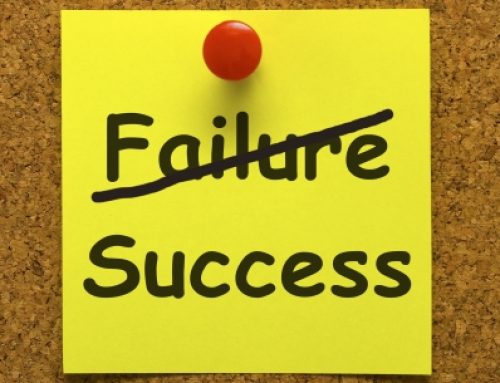You have 30 seconds before your interviewing fate is decided by a recruiter. So, your resume must quickly grab their attention – your first impression must be your best impression. A well written resume is crucial in landing a job in today’s increasingly competitive job market. And, while the job market is improving, there are still more applicants than available positions. Below are a few tips to consider when writing your own interview winning resume.
Looks Count. Believe it or not, there’s a huge aesthetic factor to the resume. Your resume must be visually appealing and exude professionalism. There shouldn’t be too many words on the page. Candidates often make the mistake of trying to squeeze everything onto a page by making 2-inch margins and 8pt sized font which only makes it difficult for a recruiter to read. Another basic pitfall to avoid is too much white space – the exact opposite. Not enough words on the paper will make you look unqualified. The best rule to follow to ensure that you have a well balanced document is to use no less than 8-inch margins and 10pt sized font such as Arial, Times New Roman, or Calibri. And lastly, your resume should be 1 or 2 full pages – not 1 ½ or 1 ¾.
Details, Details, Details. It’s very important to be extremely anal about the details when writing and reviewing your resume. Grammatical and spelling errors will easily get your resume tossed in the “no thank you” pile. Consistency is also very important. If you choose to end one bullet with a period, then all of your bulleted items must end in periods. If one section heading (i.e. Education, Experience, etc.) is 12pt sized font and the body of that section is 10 pt, then all of your section headings must be 12pt while the body of all sections must be 10pt. It’s a great idea to have a second set of eyes to review your resume to ensure accuracy and consistency.
Substance over Length. Remember my earlier post – a short, focused resume is more impactful than a long, irrelevant one. Every line on your resume should be in alignment with your career goals and clearly communicate the skills that are important for the position that you are applying for. Including too much irrelevant information makes it difficult for the recruiter to pinpoint your more relevant skills and experience. Remember, recruiters take about 30 seconds to review your resume, so you want to make it easy for them to find the information that will entice them to contact you!
Forget the Objective: Instead of a simple Objective, use a Career Profile or Summary of Qualifications as the first section on your resume. The purpose of a Career Profile is to highlight who you are, the skill sets that you possess, and your key accomplishments. A Career Profile may start off with, “Strategic Human Resources professional with over 10 years of experience in staffing, training, organizational development, compensation, and benefits administration. Diverse background includes national organizations in the consumer products and advertising industries… ” These two sentences, alone, provide an objective (it’s obvious that the job seeker is looking for a human resources position) and communicates the person’s experience and expertise.
Focus on Accomplishments. Many job seekers write resumes that read like job descriptions and only focus on their job duties instead of focusing on what makes them shine. For example, every recruiter knows what the duties of an Administrative Assistant entails. So, instead of spending considerable space on your duties as an Administrative Assistant, you should focus on what you accomplished and what set you apart from every other Administrative Assistant. What did you do that was above and beyond your typical duties? Did you develop a process to increase efficiency in the office? Did you save the company money by suggesting the use of a different office supply vendor (if so, how much)? How are you different from every other Administrative Assistant? The key is setting yourself apart and getting noticed.
Say It With Impact. As I said earlier, looks count. But, how it sounds is even more important. Using action verbs and industry buzz words are very important to creating a dynamic document. For example, instead of saying, “Responsible for leading audit processes…,” you should say, “Led audit processes….” An even better way to say it could be, “Spearheaded audit processes…” A thesaurus can be your best friend while writing your resume. One tip: Don’t overuse words – if you’ve used the word “achieved” a couple of times, use another word such as “attained” or “accomplished.” Again, use that thesaurus!
Happy Writing!!!







Hey, I just hopped over to your site via StumbleUpon. Not somthing I would normally read, but I liked your thoughts none the less. Thanks for making something worth reading.
Wow! what an idea ! What a idea ! Superb .. Remarkable
I must say, whilst browsing through numerous sites weekly, the particular style of your respective website shines (for all the appropriate causes). If you do not head us wondering, what’s the brand on this design as well as can it be the made to order affair? It really is higher than the styles I prefer for a few regarding my personal websites 😉
Several of the points related with this blog publish are generally advantageous nonetheless had me personally wanting to know, did they critically imply that? 1 point I’ve got to say is your writing expertise are very good and I’ll be returning back for any brand-new weblog post you come up with, you may probably possess a brand-new supporter. I bookmarked your blog for reference.
Spot on with this article, I truly believe this web site needs more attention. I’ll probably be again to study more, thanks for the information.
This is a amazing web site, could you be interested in working on an interview about just how you developed it? If so e-mail me personally!
Nice post. The info presented here was the greatest I could find all day lengthy, and I have been searching hard on the Internet. I think you should put this up on a big social bookmarking website, you will discover that it spreads like wildfire – Cheers – dave
[…] written resume that showcases your skills, talents and value that you bring to the table. Read my post on how to write an outstanding resume that will get noticed by employers every time. Additionally, […]
[…] out and you’ll be well on your way to creating an outstanding resume. And, of course, read my post about writing a great […]
[…] Therefore, you should always self-market. But, self marketing isn’t just about sending out resumes. It’s getting active on LinkedIn, blogging, social networking, speaking on professional panels, […]